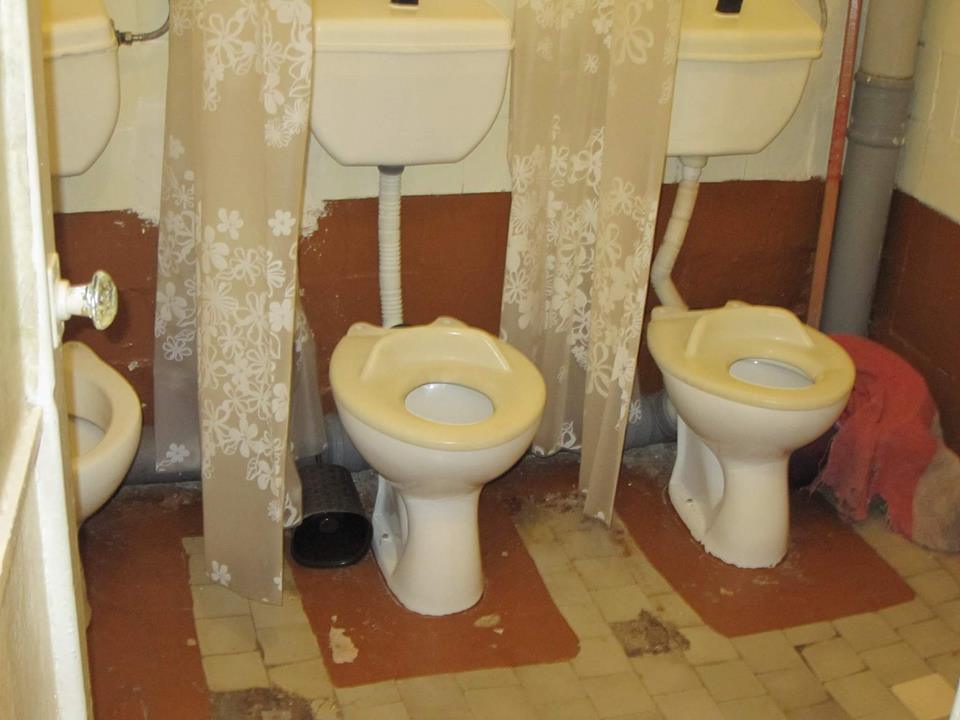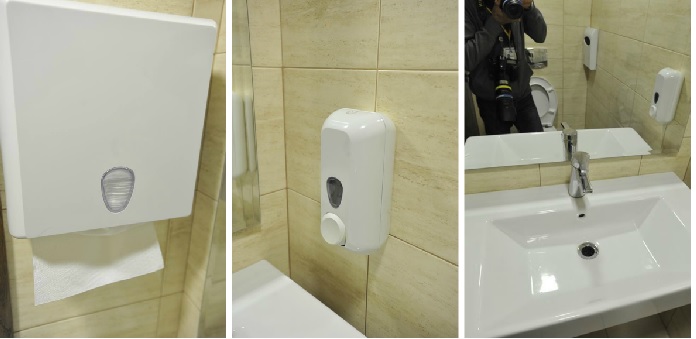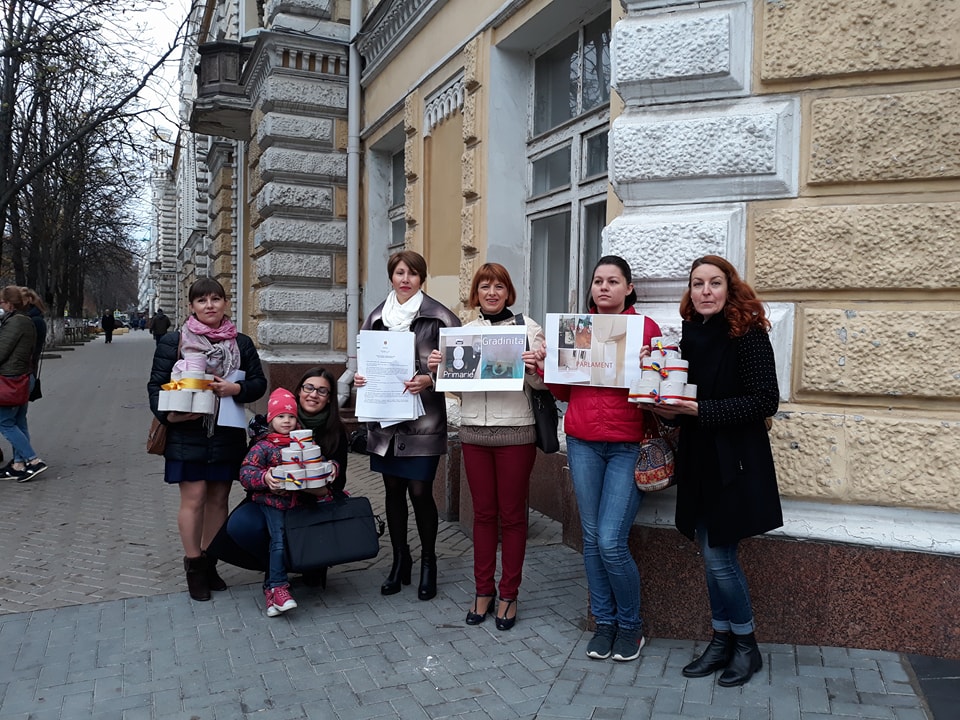Parliament sanitized from public money, kindergartens in the capital left in the parents’ care
For many years, the kindergartens in the capital have not been provided with sufficient liquid soap or toilet paper. The local public authorities argue that there is not enough money for these products. The municipal authorities plan funds only for detergents, lime, chlorine, and the hygiene of children in the pre-school institutions is left in the parents’ care. Instead, for the elected people, the state allocates abundant resources for quality hygienic products. If last year, for example, only MDL 26 were allocated from the public budget for the purchase of household hygienic products per child, then as much as MDL 530 was spent per staff member in the Parliament building, 20 times more than it is allocated for a child attending the kindergarten in the capital.
About 32,600 children attend the 157 pre-school institutions in the capital. Last year, for these institutions, over MDL 960 thousand were allocated, according to the Municipal Education Directorate.
We requested information from all the Territorial Education Directorates in the capital to let us know what amounts were allocated for the purchase of hygiene products last year. Hence, the largest amount was planned by DETS Botanica – about MDL 237 thousand.
Over MDL 185 thousand were allocated for the kindergartens in the Center district of the capital, out of which about MDL 31 thousand was planned for the purchase of detergents, washing powder, dishwashing solution and bathing solution, the remainder being allocated for lime.

Photo: Group "Parents solidarity"
In the Buiucani sector of the capital, hygienic products worth more than MDL 210 thousand were purchased.
More than MDL 128 thousand has been spent for detergents and disinfectants in pre-school institutions in the Riscani sector.
In the Ciocana sector, the total amount allocated for kindergartens here was of about MDL 200 thousand.
Hygiene in kindergartens based on the norms
From official data obtained from the public institutions, we can see that the largest amount for hygiene and household products is spent on lime, chlorine and less on detergents and soap. In the requested information we did not find the toilet paper. The authorities admit that they do not purchase toilet paper and blame “obsolete norms”.
In November, when a group of parents protested in front of the City Hall of the capital, showing dissatisfaction with the municipality that did not provide kindergartens with toilet paper and liquid soap, the authorities acknowledged that there were such problems and that the procurements were made from the parents' money. During a meeting of the City Hall, the deputy head of the General Directorate for Education, Youth and Sports in Chisinau, Viorica Negrei, said that the state cannot provide the early education institutions with toilet paper, because there is no legal possibility yet. She also specified that the five departments in the capital sector cannot buy toilet paper because this product is not included in the list of those that can be paid for. “The aspect of extending the list is also found in the parents' request and we said that we would be able to expand the list of hygiene products once the minimum endowment standards are approved. These standards also include the norms for each product, the list of products, including the issue of toilet paper, which is not yet found in any list of recommended products”, said the official during the meeting at the Mayor Hall.
High quality hygienic products in the Parliament building

Photo: C. Grigoriţă
If there is no toilet paper mentioned in the kindergarten norms, and for a child in a preschool institution, the municipality spends only MDL 26 per year, for hygiene and household products per each child; the situation is different in the Parliament building of the Republic of Moldova.
Here, the hygiene is in the top of the agenda, and the staff of the Parliament Secretariat and the deputies elected by people has new toilettes with high quality hygienic products. The toilet rooms are provided with white toilet paper, biodegradable protective paper for the closet, and liquid soap.
The data of the portal www.e-tender.md shows that the Parliament’s Secretariat has allocated over MDL 302 thousand lei for all hygienic and household products last year. In 2016, more than 560 people have been working in the Parliament Building. Referring to the number of employees of the Parliament’s Secretariat, but also Members of the Parliament and their teams (advisers and assistants), the amount of MDL 530 was allocated for purchasing hygienic products per person in the Parliament last year. This amount exceeds 20 times the amount planned for a child in pre-school institutions in the capital.
Diana Enachi, Public Procurement Expert at the Viitorul Institute for Development and Social Initiatives, says that each authority, whether central or local, plans its services, goods to be procured depending on the needs. It is about budget planning, including the available resources. “It is obvious that the budgets of the Local Public Authority are much smaller and somehow the resources should be allocated for all needs, this is not a novelty”, says the expert.
„If DETS would approach the Chisinau Municipal Council to request money for hygiene products then the money would be found...”

to the lack of hygienic paper in kindergartens. Photo: Parents Solidarity Group
Ala Revenco, an activist, member of the Solidary Parents Group, believes that for many years hygiene products are not enough in a public institution, especially when it comes to pre-school institutions. She says she does not think it is about lack of financial resources in the City Hall, but it is a way of extorting money from the parents for the maintenance of these educational institutions. “A category of expenditure so necessary, I would say the very core one. On the one hand, there is an order from the Ministry not to collect money illegally, and on the other hand, it seems that such a situation is created. This is not such a large amount and I think it could be found. If DETS would approach the Chisinau Municipal Council to request money for these products, I believe that resources would have been found to provide the kindergartens with hygienic products in full”, Revenco argued.
The activist said that now, from the parents' money, each kindergarten purchases hygienic products, which jeopardizes the health of children because the products are not purchased in terms of quality standards.
Temporary Solution
After the issue of hygiene products in the preschools was intensively publicized, the Chisinau Municipal Council recently allocated money for the purchase of toilet paper for kindergartens in the capital, products that were not purchased by the municipality for years. Following the rectifications to the municipal budget for 2017, additional MDL 2 million were allocated, financial resources to be distributed to the Territorial Education Directorates. From this money, both kindergartens and some schools in the capital will be provided with toilet paper and hygienic products.
The LPAs in Bratislava also leave the hygiene products in kindergartens to parents

In some European countries, the toilet paper is also purchased by parents. The Slovak journalist Monika Tódová, journalist at the daily newspapers Dennik N, told us that the municipal authorities in Bratislava do not spend money on toilet paper in kindergartens. “Every parent must bring hygiene products to the kindergarten. They have to do it twice a year - in September and in January again. These are public institutions run by the municipality. I did not notice any discussions about toilet paper in kindergartens. It is strange, but nobody complained. I think the reason is that our teachers usually have a very low salary, much lower than the wages of some parents. Therefore, parents pay for many other things in school”, says the journalist. The journalist showed a model ad published at a kindergarten in the capital of Slovakia, where parents are informed what products they have to bring from home.
She also added that in Bratislava's public hospitals the situation is not better and the patients are the ones who purchase the toilet paper. In fact, this is also the case in the Republic of Moldova.
The current regulatory framework of the Republic of Moldova stipulates that the provision of educational institutions with all necessary products - food or hygiene products - is the responsibility of the local public authorities. It also states clearly that “the local public authorities enjoy, under the law, a financial autonomy, adopt their own budget that is independent and separate from the state budget. The administrative-territorial units actually dispose of their own financial resources, which they use freely to fulfill their competences”, also specified in the Law on Administrative Decentralization.
This investigative article was developed with the support of the Project “Strengthening civil society capacities in the field of open data use", implemented by the United Nations Development Program and financed by the SlovakAid Transition Knowledge and Experience Transfer Program of the Slovak Republic. All opinions belong to the authors/author and do not reflect the official position of UNDP Moldova, the Government of the Republic of Moldova, the Government of the Slovak Republic or their affiliates.
Investigations in the same category:
The stories from www.anticoruptie.md may be used in the limit of up to 1,000 characters. Web pages must indicate the source and link directly to the article. Print media, Radio and TV stations must indicate the source. Publishing full version of stories is allowed based on a prior agreement with the Center for Investigative Journalism. Articles published on www.anticoruptie.md are protected by the Law on copyright and related rights of Republic of Moldova.
Comments
